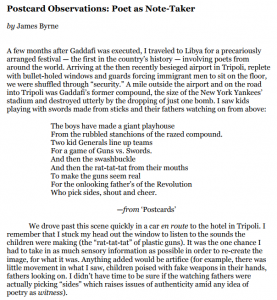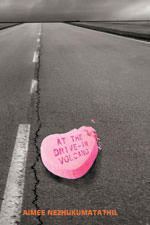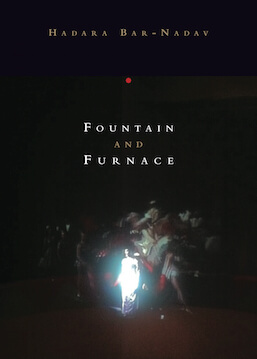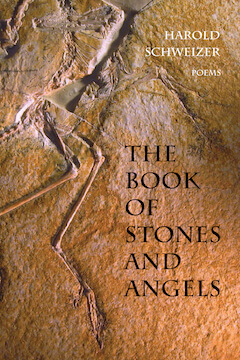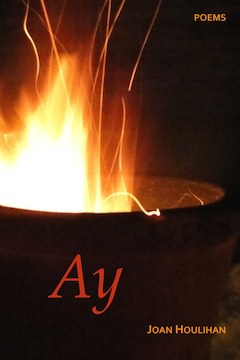Everything Broken Up Dances
by James Byrne
$19.95
“Reading James Byrne is like gulping firewater shots of the world.… in couplets, prose poems, anaphoric lists, singular lyrics, and sequences… [t]he extraordinary and deftly employed lexicon derives from everywhere.” — Forrest Gander
Format: paperback
“James Byrne travels far and wide in this collection with poems about Syria, Libya, Burma, Europe and the U.S. He writes of political tension with acknowledgement of the complex histories and cultures in a range of poetic forms, taking a position of observer. He includes names of remote places with Arabic words and phrases with clear descriptive detail to bring these places into focus for the reader. These are poems to expand a worldview, and Byrne writes passionately about people affected by political turmoil.” — Michele Bombardier, Poetry International
“This is a poetics of witness that exposes a gruesome and ecstatic truth. Poems are built on the bones of others. This may not, however, be cause for only alarm. In ‘Night,’ set in Lattakia, Syria and dedicated to Adonis, darkness provokes a question: ‘How to rinse out the ears of the world / so the world might see itself in this night?’
How indeed? Bombs burst and bullets ring out nearly every day of late. Byrne poses questions evermore urgent because the answers are evermore uncertain.” — Joseph Campana, Kenyon Review Online
“While many poems have a distinct location—Asia, the Middle East, and Africa—the profiles of people are what mints them. In the poem ‘Shaqti,’ short syllables accrue into muscular lines, such as ‘Shaqti opens the gold reckoning case of his mouth to knock back coffee.’ Shaqti is a living example of the everything that is broken up but still dances, felt in the words themselves.” — Valerie Duff-Strautmann, Salamander
Synopsis
James Byrne’s first book to be published in America navigates personal and socio-political worlds, journeying through Burma, Libya, and Syria along with documenting the poet’s years in New York City and subsequent return to England. This is a flexible poetry written “on the hoof,” nomadic and innovative, with imagery and language dexterously sparring. Byrne embraces Maurice Blanchot’s avowal that the fragmentary is permanent, “beyond fracturing, or bursting, the patience of pure impatience, the little by little suddenly.” With linguistic tenacity but by tremendously varied means, Byrne shows how “everything that is broken up dances.”
“Reading James Byrne is like gulping firewater shots of the world. The variety of poetic forms and lineations— in couplets, prose poems, anaphoric lists, singular lyrics, and sequences— acts out the author’s insistent concern for diversity, for internationality. The extraordinary and deftly employed lexicon derives from everywhere. While descriptive moments are rendered with a jeweler’s concision, Byrne’s savvy juxtapositions open each poem into panoramas of history, geography, and time in bright heuristic leaps. His poetic structures stage tha tragedy of our failure to bring One/Another together; they enact the anxiety of foreignness in prose flickers broken by dashes. It is often as though the precise, sensual snail-horns of Byrne’s language keep touching a violence, the profligate violence of our epoch, and retracting; they extend again and retract. In the hopeful pulse of that sensing, ‘the world sees itself in this night.’” —Forrest Gander
Additional information
| Weight | .4 lbs |
|---|---|
| Dimensions | 6 × .5 × 9 in |
Excerpt: Bones and Blood
Where might the sitting council sit
on Martyrs Road? Will they bud
more lime-green shoots to spout
over the military garden? No calm
in the hedgerow along the dark mile
of the street, the bolt of a gunbarrel
juts from the grills like a baited snake.
The guards remain vigilantly poised,
wide-eyed in a weft of hammocks.
Why—for over thirty years—a 32°
chill still pervades the pagoda road?
And why—after years of mopping up
bones and blood—do the stray dogs
still cower, lapping at betel juice?
Download the free reader’s companion here.

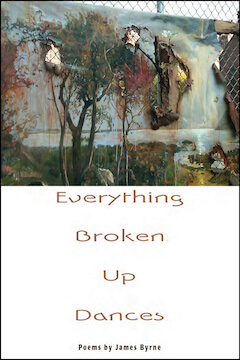
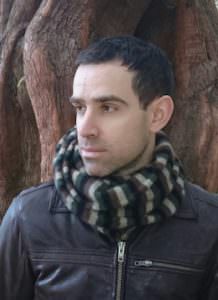 James Byrne is a poet, editor, and translator born near London, England, where he now lives again after completing an MFA as a Stein Fellow at New York University. His most recent poetry collections in the United Kingdom are Blood/Sugar and White Coins (Arc Publications, 2009 and 2015). He is the editor of The Wolf, a renowned poetry journal he co-founded in 2002, and also co-editor of Voice Recognition: 21 Poets for the 21st Century (Bloodaxe Books, 2009). Byrne teaches at Edge Hill University and was previously Poet in Residence at Clare Hall, University of Cambridge.
James Byrne is a poet, editor, and translator born near London, England, where he now lives again after completing an MFA as a Stein Fellow at New York University. His most recent poetry collections in the United Kingdom are Blood/Sugar and White Coins (Arc Publications, 2009 and 2015). He is the editor of The Wolf, a renowned poetry journal he co-founded in 2002, and also co-editor of Voice Recognition: 21 Poets for the 21st Century (Bloodaxe Books, 2009). Byrne teaches at Edge Hill University and was previously Poet in Residence at Clare Hall, University of Cambridge.